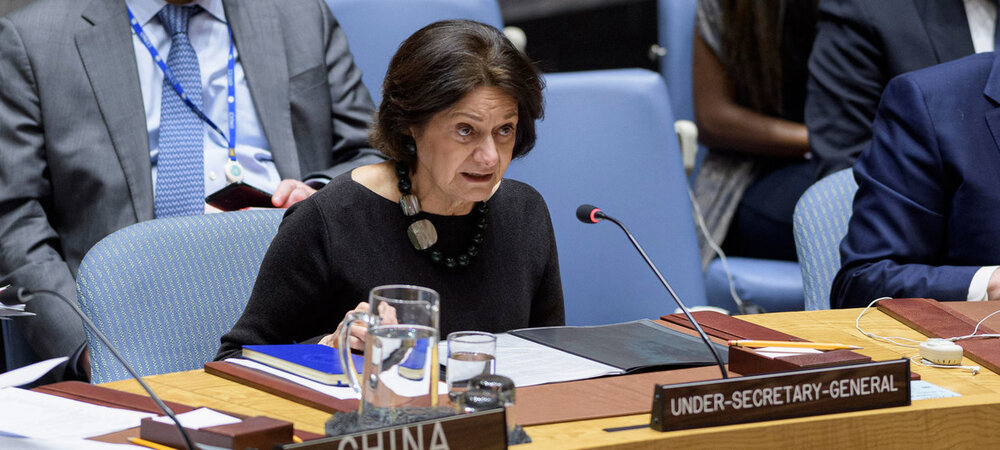No viable alternative to full and effective implementation of JCPOA: UN’s DiCarlo

TEHRAN - Under-Secretary General Rosemary DiCarlo on Tuesday briefed ambassadors on developments surrounding the Joint Comprehensive Plan of Action (JCPOA), which sets out rules for international monitoring of Iran’s nuclear program, suggesting there is “no viable alternative to the full and effective implementation” of the JCPOA and UN Security Council Resolution 2231 confirming the agreement.
Iran signed the JCPOA in 2015 alongside China, France, Russia, the United Kingdom and the United States, together with Germany and the European Union.
Negotiations are underway in Vienna to revive the deal after the U.S. pulled out in 2018 under the Trump administration.
“In recent days, both Iran and the United States have again affirmed their seriousness in seeking to return to full implementation of the JCPOA,” DiCarlo told the UN Security Council.
“The secretary general is encouraged by these pledges and calls on both countries to expeditiously translate these commitments into a mutually acceptable agreement,” she said, according to news.un.org.
DiCarlo recalled that the JCPOA is widely regarded as a cornerstone of nuclear non-proliferation, and an example of what dialogue and diplomacy can achieve.
Security Council Resolution 2231 endorses the deal, and guarantees that the International Atomic Energy Agency (IAEA) will have regular access to Iran’s nuclear program.
“The secretary general hopes that in their current negotiations, the United States and the Islamic Republic of Iran will mobilize the same spirit and commitment that resulted in the JCPOA. There is simply no viable alternative to the full and effective implementation of the Plan and the resolution,” she stressed.
Lift U.S. sanctions
In this regard, DiCarlo said that alongside the UN chief, she appealed to the U.S. to lift or waive sanctions against Iran, as outlined in the plan, and extend waivers regarding oil trade with the country.
“Also important is the extension of U.S. waivers regarding certain civilian nuclear-related activities taking place at the Bushehr Nuclear Power Plant, the Fordow Facility, and the Arak reactor,” she continued.
“Waiver extensions are also required for the transfer of enriched uranium out of the Islamic Republic of Iran in exchange for natural uranium.”
Action for Iran
The UN official also called on Iran “to reverse the steps it has taken that are not consistent with its nuclear-related commitments under the Plan.”
The IAEA has indicated that research and development activities related to uranium metal production continue.
Furthermore, although the agency has been unable to verify Iran’s stockpile of enriched uranium, estimates indicate more has been accumulated at limits that exceed the agreement.
The IAEA has also reported that its verification and monitoring activities have been “seriously undermined” by Iran’s decision to stop implementing its nuclear-related commitments, while “continuity of knowledge” on its nuclear activities has also been hampered.
Leave a Comment